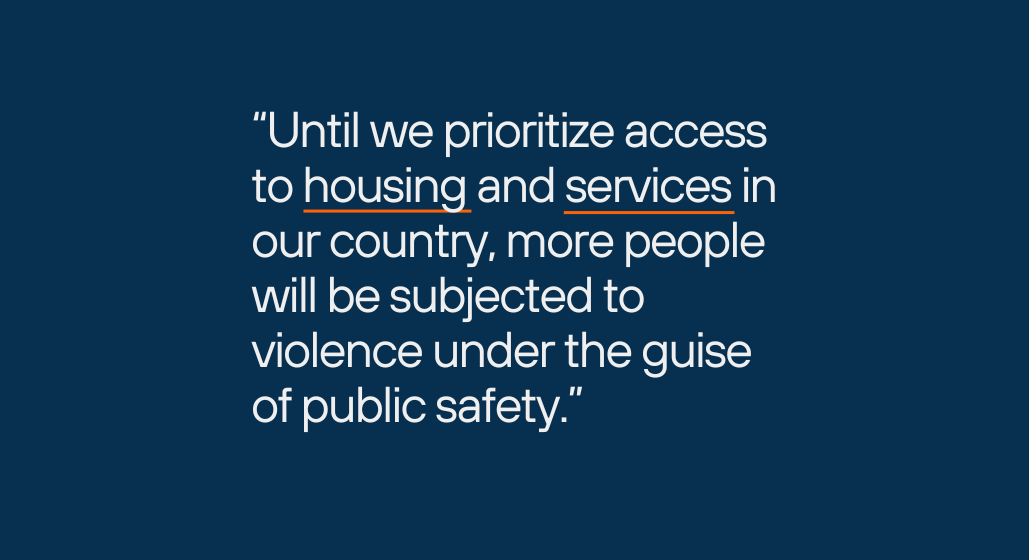Yesterday, the New York City Council passed Intro 1100-A, a new law that expands access to City-funded supportive housing for individuals transitioning out of incarceration. CSH led advocacy efforts for the bill, working closely with local partners. Council Member Carlina Rivera sponsored the legislation and built support among her colleagues.
At a press conference outside City Hall, Lauren Velez, Director of CSH’s Metro NY Team, explained why passing the new law is so important:
“Too often, our neighbors leaving Rikers get trapped in a cycle of homelessness and incarceration without ever receiving the services and support they need to stabilize their lives. Intro 1100 changes that,” Velez said. She added, “When people cycle through homelessness and incarceration, it’s costly for New York taxpayers and makes our communities less safe.”
Velez was joined by Council Member Rivera, Comptroller Brad Lander, Public Advocate Jumaane Williams, and representatives from the Supportive Housing Network of New York, Fortune Society, Freedom Agenda, Urban Pathways, and Coalition for the Homeless.
Read City Limits op-ed written by Lauren Velez and Council Member Carlina Rivera.
What the Law Changes
Before this legislation, a person experiencing homelessness and who was incarcerated for 90 days or longer would have the jail time considered a “break” in homelessness, and none of their time in jail could be counted toward eligibility for supportive housing.
Intro 1100 ensures that anyone who enters jail as a person who is homeless will continue to accrue time toward eligibility. CSH has long maintained that any kind of institution, particularly a jail, should never be considered a home in any circumstance.
Why It Matters
The need for reform is urgent. In 2023:
– One-third of people admitted to NYC jails were unhoused before incarceration.
– More than 40% of people released from state prisons to NYC entered shelters immediately.
Supportive housing is a proven solution for people who cycle between homelessness and incarceration—especially those living with mental illness or substance use disorders. In contrast, punitive approaches like forced treatment or incarceration often fail to connect people to long-term housing and services.
Acknowledgments
CSH thanks Council Member Rivera, Comptroller Lander, Public Advocate Williams, and the “Jail is Not a Home” committee members who helped make this legislation possible:
– Lily Shapiro, Fortune Society (co-chair)
– Tierra Labrada, Supportive Housing Network of NY (co-chair)
– Kandra Clark, Urban Pathways
– Gary Jenkins, Urban Pathways
– Alison Wilkey, Coalition for the Homeless
– Sarita Daftary, Freedom Agenda
– Dr. Victoria Phillips, Community Advocate
– JJ Parish, Urban Justice
– Reggie Chatman, Fortune Society



